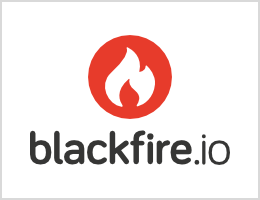@Cache
The @Cache annotation allows to define HTTP caching headers for expiration
and validation.
HTTP Expiration Strategies
The @Cache annotation allows to define HTTP caching:
1 2 3 4 5 6 7 8
use Sensio\Bundle\FrameworkExtraBundle\Configuration\Cache;
/**
* @Cache(expires="tomorrow", public=true)
*/
public function index()
{
}1 2 3 4 5 6
use Sensio\Bundle\FrameworkExtraBundle\Configuration\Cache;
#[Cache(expires: 'tomorrow', public: true)]
public function index()
{
}You can also use the annotation on a class to define caching for all actions of a controller:
1 2 3 4 5 6
/**
* @Cache(expires="tomorrow", public=true)
*/
class BlogController extends Controller
{
}1 2 3 4
#[Cache(expires: 'tomorrow', public: true)]
class BlogController extends Controller
{
}When there is a conflict between the class configuration and the method configuration, the latter overrides the former:
1 2 3 4 5 6 7 8 9 10 11 12
/**
* @Cache(expires="tomorrow")
*/
class BlogController extends Controller
{
/**
* @Cache(expires="+2 days")
*/
public function index()
{
}
}1 2 3 4 5 6 7 8
#[Cache(expires: 'tomorrow')]
class BlogController extends Controller
{
#[Cache(expires: '+2 days')]
public function index()
{
}
}Note
The expires attribute takes any valid date understood by the PHP
strtotime() function.
HTTP Validation Strategies
The lastModified and Etag attributes manage the HTTP validation cache
headers. lastModified adds a Last-Modified header to Responses and
Etag adds an Etag header.
Both automatically trigger the logic to return a 304 response when the response is not modified (in this case, the controller is not called):
1 2 3 4 5 6 7 8 9 10
use Sensio\Bundle\FrameworkExtraBundle\Configuration\Cache;
/**
* @Cache(lastModified="post.getUpdatedAt()", Etag="'Post' ~ post.getId() ~ post.getUpdatedAt().getTimestamp()")
*/
public function index(Post $post)
{
// your code
// won't be called in case of a 304
}1 2 3 4 5 6 7 8
use Sensio\Bundle\FrameworkExtraBundle\Configuration\Cache;
#[Cache(lastModified: 'post.getUpdatedAt()', etag: "'Post' ~ post.getId() ~ post.getUpdatedAt().getTimestamp()")]
public function index(Post $post)
{
// your code
// won't be called in case of a 304
}It's roughly doing the same as the following code:
1 2 3 4 5 6 7 8 9 10
public function my(Request $request, Post $post)
{
$response = new Response();
$response->setLastModified($post->getUpdatedAt());
if ($response->isNotModified($request)) {
return $response;
}
// your code
}Note
The Etag HTTP header value is the result of the expression hashed with the
sha256 algorithm.
Attributes
Here is a list of accepted attributes and their HTTP header equivalent:
| Annotation | Response Method |
|---|---|
@Cache(expires="tomorrow") |
$response->setExpires() |
@Cache(smaxage="15") |
$response->setSharedMaxAge() |
@Cache(maxage="15") |
$response->setMaxAge() |
@Cache(maxstale="15") |
$response->headers->addCacheControlDirective('max-stale', 15) |
@Cache(staleWhileRevalidate="15") |
$response->headers->addCacheControlDirective('stale-while-revalidate', 15) |
@Cache(staleIfError="15") |
$response->headers->addCacheControlDirective('stale-if-error', 15) |
@Cache(vary={"Cookie"}) |
$response->setVary() |
@Cache(public=true) |
$response->setPublic() |
@Cache(lastModified="post.getUpdatedAt()") |
$response->setLastModified() |
@Cache(Etag="post.getId() ~ post.getUpdatedAt().getTimestamp()") |
$response->setEtag() |
@Cache(mustRevalidate=true) |
$response->headers->addCacheControlDirective('must-revalidate') |
Note
smaxage, maxage and maxstale attributes can also get a string
with relative time format (1 day, 2 weeks, ...).

